Virtual Event
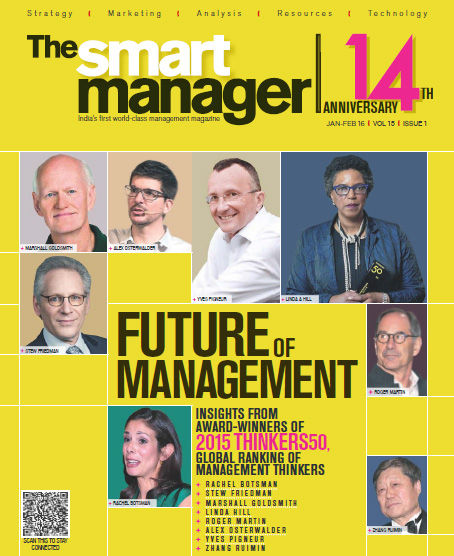
Insights from Award-Winners of 2015 Thinkers50, Global Ranking of Management Thinkers
The 14th Anniversary issue of The Smart Manager features the Future of Management, Global Thought Leaders that won in the 2015 Thinkers50.
Read The Smart Manager: Future of Management
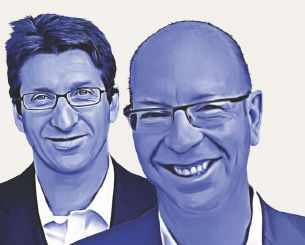 |
Back to the Future Having compiled the Thinkers50 since 2001, Stuart Crainer and Des Dearlove highlight how the 2015 ranking was perhaps the most intriguing and significant. According to them, it marks significant changes in the way organizations are managed and led—and how we think about organizations. |
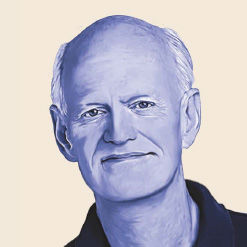 |
Four Reasons We Settle for ‘Good Enough’ The moment we stop striving and begin to coast on our good reputation—this is the perilous moment when we settle for ‘good enough.’ And this is the moment that, at best, change stops and, at worst, we revert to our old ways. |
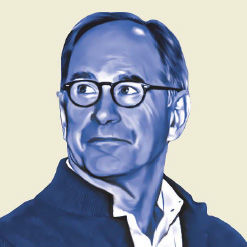 |
Path to Equilibrium Change How would you define the role of a ‘social entrepreneur’ as opposed to a social service provider or social advocate? There are two dimensions we think about when we make these distinctions. First is whether the actor is attempting to ameliorate a bad situation or transform it. And second is whether the actor creates the solution himself/herself or convinces another party to do so. |
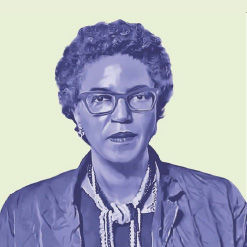 |
Unleashing Collective Genius What many of us consider ‘great leadership’ does not work when it comes to leading innovation. Although there is a great deal of research on leadership and on innovation, very little looks at the connection between the two. Along with three collaborators, I have spent over a decade studying exceptional leaders of innovation from diverse countries and industries. Some led teams, others led vast enterprises or global networks. All built organizations able to innovate not once, but time and again. |
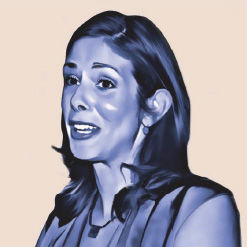
|
Collaboration: Rise of the Third Wave The transformative power of collaborative consumption… It changes the way we live by transforming our relationship to ownership. We do not have to individually own things such as cars that sit idle in our garage or specialized equipment that have limited use, but can pay for shared access. Indeed, an interesting question is emerging: what does it mean to own something in the digital age? |
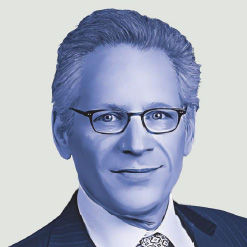 |
How to Achieve Four-Way Wins Work-life integration as opposed to work-life balance… Too many people believe that to achieve great things we must make brutal sacrifices, to succeed in work we must focus single-mindedly, at the expense of everything else in life. Even those who reject the idea of a zero-sum game fall prey to a kind of binary thinking revealed by the term we use to describe the ideal lifestyle: ‘work/life balance’. The idea that ‘work’ competes with ‘life’ ignores ‘life’ is actually the intersection and interaction of four major domains: work, home, community, and the private self. |
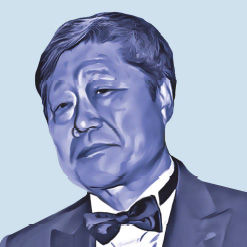 |
What Leadership Looks Like Before the Thinkers50 2015 event, myself and Des Dearlove found ourselves in a dining room over a pub in London’s Belgravia. Our guests for the evening were Zhang Ruimin of Haier, his interpreter, and two colleagues. Then for three riveting hours, we heard the story of Haier and Zhang Ruimin’s amazing work in reinventing management and organizations for the twenty-first century. Along the way what became clear was that we were in the presence of a remarkable man. A leader. |
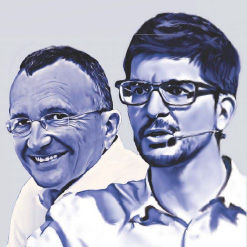
|
Why Your Company Might be Risking a Kodak Moment You can be an innovative company and still go bankrupt. Take Kodak for example. They were a pretty innovative company, but that did not prevent them from going bust. Despite inventing the core technology used in digital cameras today, Kodak’s technology innovation was not enough for the company to figure out a business model that could be a central piece to their future growth strategy. |

Thinkers50 Limited
The Studio
Highfield Lane
Wargrave RG10 8PZ
United Kingdom

Thinkers50 Limited
The Studio
Highfield Lane
Wargrave RG10 8PZ
United Kingdom

Thinkers50 Limited
The Studio
Highfield Lane
Wargrave RG10 8PZ
United Kingdom
| Cookie | Duration | Description |
|---|---|---|
| LANG | 9 hours | Linkedin set this cookie to set user's preferred language. |
| nsid | session | This cookie is set by the provider PayPal to enable the PayPal payment service in the website. |
| sp_landing | 1 day | The sp_landing is set by Spotify to implement audio content from Spotify on the website and also registers information on user interaction related to the audio content. |
| sp_t | 1 year | The sp_t cookie is set by Spotify to implement audio content from Spotify on the website and also registers information on user interaction related to the audio content. |
| tsrce | 3 days | PayPal sets this cookie to enable the PayPal payment service in the website. |
| x-pp-s | session | PayPal sets this cookie to process payments on the site. |
| __cf_bm | 30 minutes | This cookie, set by Cloudflare, is used to support Cloudflare Bot Management. |
| Cookie | Duration | Description |
|---|---|---|
| l7_az | 30 minutes | This cookie is necessary for the PayPal login-function on the website. |
| Cookie | Duration | Description |
|---|---|---|
| CONSENT | 2 years | YouTube sets this cookie via embedded youtube-videos and registers anonymous statistical data. |
| _ga | 2 years | The _ga cookie, installed by Google Analytics, calculates visitor, session and campaign data and also keeps track of site usage for the site's analytics report. The cookie stores information anonymously and assigns a randomly generated number to recognize unique visitors. |
| _gat_gtag_UA_10408481_1 | 1 minute | Set by Google to distinguish users. |
| _ga_ZP8HQ8RZXS | 2 years | This cookie is installed by Google Analytics. |
| _gid | 1 day | Installed by Google Analytics, _gid cookie stores information on how visitors use a website, while also creating an analytics report of the website's performance. Some of the data that are collected include the number of visitors, their source, and the pages they visit anonymously. |
| Cookie | Duration | Description |
|---|---|---|
| NID | 6 months | NID cookie, set by Google, is used for advertising purposes; to limit the number of times the user sees an ad, to mute unwanted ads, and to measure the effectiveness of ads. |
| test_cookie | 15 minutes | The test_cookie is set by doubleclick.net and is used to determine if the user's browser supports cookies. |
| VISITOR_INFO1_LIVE | 5 months 27 days | A cookie set by YouTube to measure bandwidth that determines whether the user gets the new or old player interface. |
| YSC | session | YSC cookie is set by Youtube and is used to track the views of embedded videos on Youtube pages. |
| yt-remote-connected-devices | never | YouTube sets this cookie to store the video preferences of the user using embedded YouTube video. |
| yt-remote-device-id | never | YouTube sets this cookie to store the video preferences of the user using embedded YouTube video. |
| yt.innertube::nextId | never | This cookie, set by YouTube, registers a unique ID to store data on what videos from YouTube the user has seen. |
| yt.innertube::requests | never | This cookie, set by YouTube, registers a unique ID to store data on what videos from YouTube the user has seen. |
| Cookie | Duration | Description |
|---|---|---|
| DEVICE_INFO | 5 months 27 days | No description |
| loglevel | never | No description available. |
| m | 2 years | No description available. |
Thinkers50 Limited has updated its Privacy Policy on 28 March 2024 with several amendments and additions to the previous version, to fully incorporate to the text information required by current applicable date protection regulation. Processing of the personal data of Thinkers50’s customers, potential customers and other stakeholders has not been changed essentially, but the texts have been clarified and amended to give more detailed information of the processing activities.